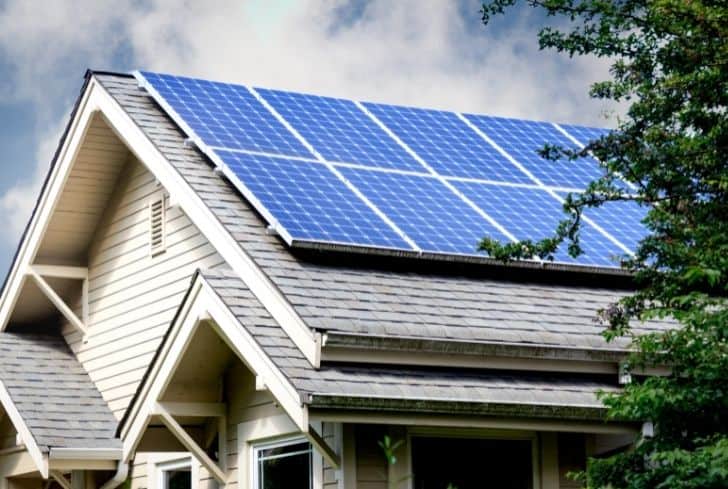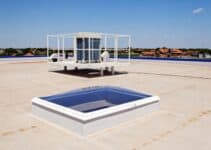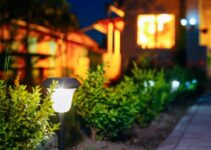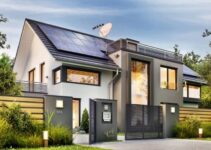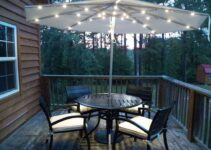Many misconceptions about solar panels discourage many property owners from enjoying cheaper and more sustainable energy. Many people believe fossil fuel energy is more affordable, solar panels cause roof damage, and are generally more expensive to maintain.
Another one is that solar panels are loud. Well, these are all untrue; however, the focus of this blog post is the disbelief that solar panels make noise. Ordinarily, no one wants their peace to be disturbed, so we understand why homeowners avoid noisy energy sources.
Well, solar panels aren’t loud because they have no moving parts. As such, their service is noiseless. Keep reading to discover when a solar panel may get loud and how to solve that minor disruption. Enjoy!
Are Solar Panels Loud?
If solar panels make noise, it’ll discourage many users because, although we value electricity, no one wants a machine that’ll constantly and noisily remind them of its presence.
The solar inverter or supplemental generator may make noise, and its intensity depends on the size and brand you’re opting for. But, solar panels when installed properly won’t make noise.
However, if you notice a banging, popping, creaking, or shaking and blowing noise, it means that solar panels weren’t installed properly. The noise begins when the components are working, i.e., to charge the rechargeable batteries. But when the solar energy is being expended at night, the sound the system emits is whisper-light.
Noise from solar panels is unusual, but it rarely exceeds 45dB. dB, also called decibel rating, is the measurement used for noise rating. You’ll find it on the specs sheet to give you an idea of what to expect.
30dB means the sound will be whisper-light, 60dB means expect the rating of a conversational, while 70dB sounds like a motorcycle in action. Finally, the loudest rating is 120dB, and it sounds like you’re standing next to sirens.
As we’ve already said, the average solar lights won’t go above 45dB while converting DC into AC power. Besides, the CDC has proclaimed that noise between 0 to 60dB is barely potent enough to cause hearing damage. If it goes above 70dB for too long, it may damage the hearing of nearby residents.
Finally, 120dB is too loud because it causes an instant impairment to the hearing. Solar panels make noise, but not enough to cause any noticeable disturbance or damage.
Types of Noise From Solar Panels, Causes, and the Solutions
Solar lights lack moving parts, so that’s the primary reason they won’t cause noise pollution. However, if you fail to install your solar panels properly, you’ll receive your fair share of noise pollution.
We’ll provide a list of plausible sounds to expect from a faulty solar panel. You’ll also discover the most suitable solution:
1. A banging and popping noise
A banging and popping noise erupting from any machine isn’t the most anticipated scenario. It’s a no-brainer that the device is faulty. Or, in solar-panel-related terms, there’s a problem with contraction and expansion.
It occurs when the solar panels are installed too close, and you can rectify it by reinstalling them and leaving enough space between them to allow for seamless terminal changes.
2. A creaking noise
If a creaking noise is noticeable while your solar panel functions, the wind is grabbing at the boards that aren’t firm enough.
You can double-check to ensure that the loose ones are properly fixed to prevent them from being easily tossed around by the wind.
3. A hitting noise
When a hitting noise keeps you up, it’s caused by loose wiring. Re-examine your cables to ensure they’re secure enough.
The hitting sound will cease when there are little to no hanging sections.
4. Falling or running
Falling or running noises from birds and other small creatures can sometimes get loud. There’s an attraction for them on your solar panels, caused by installing them in a slanted manner or erecting other constructions like a TV antenna.
To dissuade these creatures from liking your energy source, make the panels flat, not slanted. Then, avoid erecting additional structures near your solar lights.
5. Shaking and Blowing
An intense wind is one of the few factors that can negatively affect solar panels. So, when you hear the telltale shaking and blowing noise, ensure the solar panels are well installed.
You can put some rubber pads between the panels and the roof, but only after double-checking that they’re now well secured.
6. Rattling
The telltale noise a poorly installed racking produces is a rattling and noticeable sound.
The solution – check your screws and have them tightened.
Do Solar Panels Make Noise at Night?
No, solar panels don’t make noise at night. If you’re looking to install this alternate energy source at home, or worry about a nearby installation, put your mind at peace.
Solar lights do most of their work during the daytime. The photovoltaic system receives UV rays, processes them into electricity, and stores them for nighttime. It becomes activated when the light sensors detect darkness.
The inverters and transformers are two components that may make noise at night. There may be humming during the day, but any noise beyond this decibel is an unusual nuisance when night falls.
You’ll scarcely hear anything from solar panels that have been properly installed. They’ve been engineered to provide a noiseless service. So, any overpowering sound, even when you’re more than fifty feet away, is unwelcome and abnormal.
We’ve explored possible causes, such as noise from the inverter, the wind, or loose racking.
How to Prevent Noise From Solar Panels?
The inverter is sometimes the leading cause of a humming sound from your solar lights. One of the endearing factors of solar energy is the panels that you can install yourself, even with little to no experience.
If you hear any unbearable or noticeable sound, it could be because the racking isn’t properly attached to the rafter. Metal sounds or an inexplicable rattling are telling signs of this defect, but it’s nothing tightening the racking won’t fix.
Some people install their solar panels without introducing some padding between them and the roof. Well, the wind sometimes has a field day in cases like this, passing through that space and disturbing your peace.
You can avoid that rookie mistake by installing rubber pads between the panels and the roof. If your solar panels have been installed without the pads, you can have a handy person check it out and do the required installations.
Finally, solar panels sometimes have loose cabling. If your installer clips aren’t tight enough to hold them in place, they may create unbearable noise.
Most Common Form of Noise from a Solar Inverter
Different sounds can erupt from the system depending on what’s wrong with your solar lights. By now, we’re certain you’re aware that the solar panels themselves are noiseless, so the culprit is often the inverter.
Well, the most common form of noise from a solar inverter is a humming sound, and it occurs while this device converts photons into electrical currents to illuminate your home.
However, the sound seldom exceeds 45 dB, so you’ll barely notice it, especially when you’re more than 50 feet away from the system.
Besides, the humming sound only happens while the solar lights synthesize electricity. As the inverter converts the acquired DC energy into AC, it can’t help the sounds it elicits.
But again, energy production happens in the daytime, so you don’t have to worry about any sounds interfering with your peace. We recommend inspecting the solar lights for installation defects if it goes beyond that humming sound.
How to Reduce the Noise From Your Solar Inverter
If your solar inverter has been making some unbearable sounds, it may be a sign to bring in professional help. However, there are also some sounds that you can handle yourself, such as the beeping sound that happens when the panels need a charge cycle.
In that case, ensure you charge it thoroughly before using the solar lights again.
On the other hand, it could be because it requires maintenance if it makes a crackling or buzzing sound.
You can reduce the noise from your solar system by erecting a shield around it. A metal enclosure is a popular choice. Finally, if you have ample land space, install the solar inverter at least fifty feet from your home.
Do Solar Farms Make Noise?
Energy options are increasing, thanks to technology. An appropriate example is solar farms – they make electricity cheaper, more sustainable, and more reliable. So, it’s little wonder they’re popping up in diverse parts of the States.
A solar farm is an installation of solar panels on a large scale. It’s notable for installing large numbers of solar panels on a large expanse of land. They sit there, absorbing direct sunlight, charging to their full capacity, and serving their designated purpose.
Perhaps you’ve just discovered that a solar farm is about to be built close to your home. Don’t worry about noise pollution because most of these facilities are regulated by policies to protect your peace. Although, the sound limit varies from one state to the other.
Now, a solar farm may make noise. Again, a solar panel makes just beyond whisper sounds. So, if you’re hearing anything disturbing, it could be caused by component factors.
Currents trapped by solar panels are stored in a DC battery. However, the energy must be transformed into AC or alternating-current power. That’s the inverter’s job, which is also where any supposed noise may come in. It’s caused by the collision of electromagnetic forces or the laborious functioning of the cooling fan.
A solar farm utilizes a significant portion of resources, seeing as it supplies electricity to many or hefty consumers.
To prevent instances where noise pollution becomes a hassle for residents in the area, the sound-generating equipment should be installed at the farthest point from external contact. This can be at the center of the solar farm or an edge of the land removed from easy access.
There are cheaper alternatives to noisy inverters and transformers in the same vein.
Do Solar Lights Work in Winter?
Your energy needs won’t cease when the cold winter days come. As such, this energy source must be capable of delivering some illumination, regardless of the season.
Well, solar lights work in winter. However, they don’t charge nearly as long as they ought to because the sunlight isn’t as potent during the cold days.
But even then, solar lights will still illuminate, thanks to their rechargeable batteries.
Conclusion
Solar lights are taking over the energy production space. They’re cheaper and more environmentally sustainable too, so it’s little wonder their demand steadily increases.
However, there are some factors you must prepare yourself for before making this worthy investment. It includes the acceptable noise rating, sounds that aren’t, and how to fix them, all of which we’ve adequately explored in this blog post.
